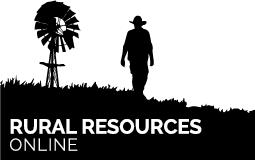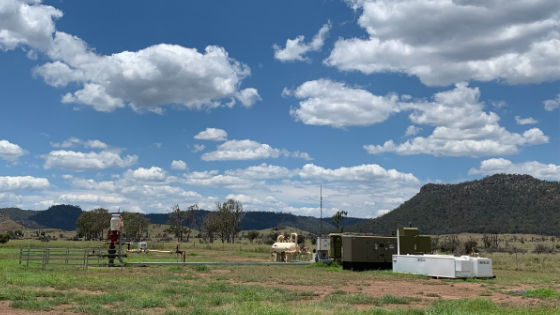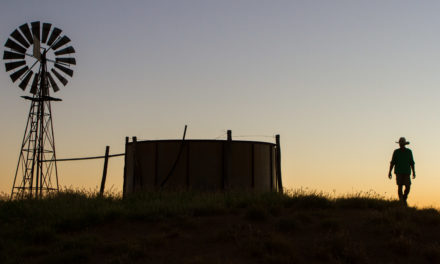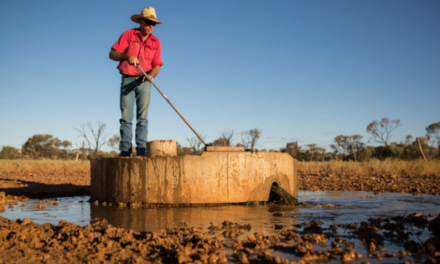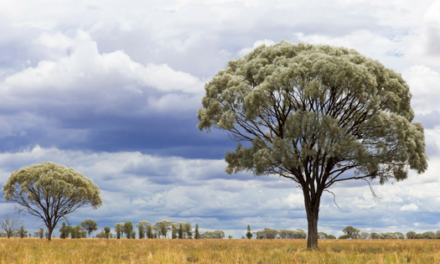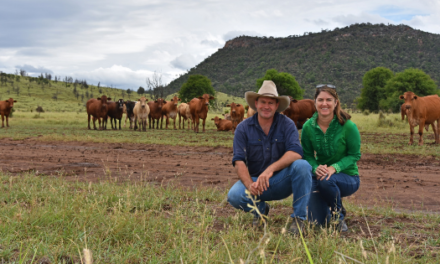Do you know a mother who wouldn’t jump at the chance to get an updated family photo? Well that was me when the offer came in to be in an article in the Outback magazine about our beautiful home.
We ended up with some lovely pictures.
But the question “what it is like to co-exist with Santos” was not one that could be answered in a couple of sentences.
We hope our comments encourage others to talk and assist other landholders in their negotiations.
Afterall, you don’t know what you don’t know.
Our story is not the same as our neighbours and that’s ok. We’re only wanting to contribute to the conversation, not control it.
So here goes…
We are proud to say we are viable and profitable farmers. We do not need external funding to drought proof our business. We operate within the law and have worked hard to secure premium markets and higher returns for our beef.
We have managed our organically certified beef enterprise through challenging seasons and reduced inputs. In response to Industry requests we became best management practice certified a couple of years ago. That process involved passing an audit to ensure we complied with over 150 international standards.
Minding our own business
We are a small multigenerational farming business coexisting with a corporate entity that mines gas on the freehold land owned by our family.
We consider ourselves custodians of the land we operate on and we are driven to provide an environment that encourages our children to join and grow our family business.
Our home is also our place of business. In recent years our livelihood has been challenged with the legal requirement for us to co-exist with a coal seam gas mining company.
In 2018, after a lengthy negotiation process that involved experts, research and considerable time, an additional 12 csg wells were approved to be constructed on our family home. Since that time we have been let down by significant breaches of the conduct and compensation agreement negotiated. As the law states, we know that despite generations of knowledge legally farmers are not experts. We did our due diligence and engaged legally recognised experts. We committed to co-existing on mutually agreed terms.
We do not however, want to simply exist we want to thrive.
Our national economy is heavily reliant upon coal seam gas mining and we are not calling for it to be shut down. As business owners we simply ask ourselves what does it bring to the table for our specific business model on the specific parcel of land at this specific point in time.
We acknowledge that csg mining is a welcome enterprise for other businesses. We have no problem with that and have no intention of passing judgement on other producers.
The law is written so that we must co-exist.
But the reality for us is challenging and to talk about csg mining on prime agricultural land we have to be honest in sharing our experience.
Also, as an Industry we need to get better at discussing csg mining like we do any other enterprise operating on agricultural land. Just as we do for grazing and cropping we only improve outcomes when we share knowledge and experience.
The future of farming
The csg mining project on our land is called an ADP which stands for Accelerated Depletion Program. This mining has an end point in the future when the resource has been depleted or the product is no longer viable to extract.
In the short-term csg mining is needed to boost the nation’s economy.
But it is not a long-term strategy.
As an intergenerational custodian of the land we have a strategic long-term vision with short-term goals that require ongoing risk management to be successful.
Our business model welcomes increased opportunities to adopt affordable renewable energy systems. For example, we are transitioning away from diesel generators to pump water and have invested significantly in solar power to pumping water and generate electricity.
Our business is working with government researchers to identify ways our industry can achieve the goal of zero emissions through recognition of on-ground practices, as opposed to buying off-sets from an overseas country.
Fundamentally, our vision, focus and motivation are not in alignment with the mining company.
To make co-existence a functioning concept there must be accountability. Currently, the system is letting some landholders down because of the short-term economic focus and legislation that prioritises mining over farming.
No-one seems to have agriculture’s back.
It’s not personal
We are a family business that believes as custodians of the land for future generations how we manage the soil now will determine our long-term viability. Producing the best possible beef product will keep our business profitable.
We are committed to extremely good outcomes in terms of land management because we know that ensures we produce good beef.
Science tells us if we look after the soil it will grow healthy grass and groundcover.
Experience tells us healthy grass and groundcover grows content cattle.
Content cattle are productive animals with good weight gains.
There are no seasons underground
For a primary producer seasonal conditions dictate management decisions.
When seasons are irrelevant you operate with a different focus and time line.
Mining companies access their resource by disturbing the soil. The major climatic concern for mining companies is rain and the potential impact of bogged vehicles.
For our business disturbed ground significantly impacts our ability to be sustainable and make money. Because the groundcover has been removed a series of good seasons is necessary for the land and pasture to recover.
Unfortunately, this can take years. We have land that has still not recovered to an extent where cattle can graze on the land.
This land was disturb over 7 years ago.
A payment was received for the use of the land to construct the GLNG pipeline and for a short period of time for the land to be rehabilitated. To date the land has not recovered to it’s pre-disturbance state.
We have made a management decision to no restock that section of land. We are forgoing an economic return to allow that land to recover, however long it takes.
Until the seasons change in our favour the land will remain unproductive.
The climate change concern for farmers
Most primary producers are hesitant to get into a discussion on climate change. This is because the narrative around the topic has been high jacked.
The discussion seems less focused on “change” and usually followed up with “what are you doing about fixing it?” which immediately puts farmers on the defensive.
If however, you ask a farmer how their season is going you will hear their observations.
We know on our country the expected break in the season has shifted from the end of December through to the end of January, even February. We have had to adjust our feed budget to match.
We don’t live on hope that it will rain, we set critical decision dates and respond accordingly.
When the rain hasn’t arrived by a certain date then a destocking process commences.
It’s strategic and intended to look after the groundcover, which in turn, looks after the soil.
We continually adjust our practices in response to seasonal variations.
Managing risk on farming land
A changing climate is one of the many risks that are known and managed by primary producers.
Generations of knowledge tells us the seasons and climate have always changed.
Our strategic focus is long-term but we manage the immediate risk to our business and weigh up the specific impacts on our business at this point in time.
The good, the bad and the very ugly reality of csg mining
Bare ground allows soil temperature to increase, damaging biological activity killing off microbes. Lost soil life and soil organic matter means degraded land.
Grazing adds carbon to the soil surface and feeds the soil biology.
But the balance has to be right.
When seasons are good, the land recovers at a much quicker rate after disturbance.
Seasonal changes dictate our business management response.
The problem with csg mining is that it must disturb the soil to access the gas resource and when seasons are irrelevant you operate with a different focus and time line.
Unfortunately, our overall experience with csg mining and the associated activity on our land has not been positive.
We do not have issues with the individuals who work for the company. In fact we get on really well with most of them.
Coal Seam Gas is s product and csg mining is a process where individuals are employed to do their job. With a heavy reliance on contractors the internal process don’t seem to be able to manage the stark contrast of competing cultures and motivators.
Not all stakeholders are shareholders
The lesson from the Juukin rock caves that were destroyed by RioTinto is the importance of listening to stakeholders and not just focus on profits for shareholders.
In Qld, the government maps ground cover. On agricultural land where the groundcover has been lost we need to talk about who owns that loss.
We have a political model that imposes penalties but does little to reward good land managers.
So who is ultimately responsible for repairing lost groundcover and who will be accountable when the gas companies leave and the true impact of mining this fossil fuel is known?
Currently, there is a lack of understanding on behalf of the mining companies in terms of what motivates a farmer.
Money cannot solve or fix all problems and once trust is lost in a relationship it is very hard to repair.
For our family the significant breaches of conduct impacted our business, our home and our wellbeing. The lack of respect shown to our business practices highlighted how our values do not align.
Again, we are talking about the corporate culture and not the individual workers. This posts is not about listing the breaches, it’s about the bigger issues and questioning the current system safegurards.
In cases such as ours the system to protect landholders rights in terms of negotiated agreements needs to be robust.
The csg industry has expanded rapidly into grazing and broadacre cropping land. For co-existence to be more than a description of this situation there must be recognition of the impacts as well as highlighting the opportunities.
Surely it’s in the nation’s interest for us to engage in meaningful conversations about trust, accountability and protection of assets?
As 2020 reminded us, fossil fuel mining can be replaced but healthy agricultural land cannot.
